These are important laws, fundamental in nature, reshaping the legal framework for the real estate market. Along with that, the Government has made continuous efforts to remove difficulties and support the real estate market. However, in addition to support policies, the real estate market also has to face fluctuations in the macro economy and domestic and foreign financial and monetary markets, creating a new context for real estate investment activities.
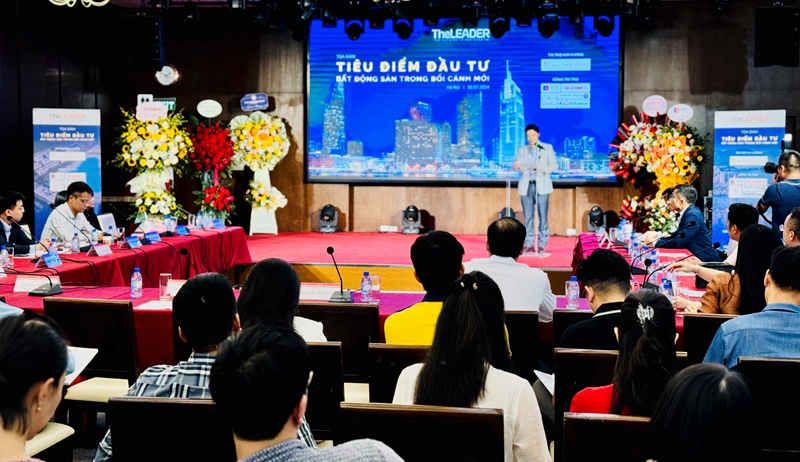 |
| Scene of the Discussion (Photo: HNV) |
These comments were clarified at the seminar "Investment focus: Real estate in the new context" organized by TheLEADER on the afternoon of July 30 in Hanoi .
Attracting a large number of experts, lawyers, and managers, the Forum analyzed the impact of new legal regulations on real estate investment activities and discussed what businesses need to do to adapt to the new legal framework, as well as analyzed potential investment opportunities and strategic investment areas in the new context.
At the seminar, representatives of business associations, real estate investment and consulting enterprises, real estate legal experts discussed the impact of 3 amended laws on the real estate market and real estate enterprises, legal problems that have been resolved, and remaining problems; Has the real estate market started a new cycle?; Real estate price developments; Potential investment areas. The attraction of real estate segments with investment cash flow; Business strategies to adapt to new legal regulations, market changes and customer tastes; Credit flow into real estate and pressure on real estate bonds.
 |
Ms. Nguyen Hoai An, Senior Director of CBRE Vietnam, spoke at the seminar (Photo: PV) |
Positive outlook for real estate
Speaking at the seminar, Ms. Nguyen Hoai An, Senior Director of CBRE Vietnam, affirmed that some of the drivers of Vietnam's economic growth in the recent period include FDI capital flows that continue to grow well. In the first 6 months of 2024, Vietnam is still one of the leading countries in attracting FDI (both in terms of registration and disbursement) in the region. This amount of capital contributes to overall economic growth and promotes real estate development, especially industrial real estate. According to Ms. An, another growth driver is the recovery of import and export in the first 6 months of 2024 at 14.5%, contributing to a significant recovery of the country's GDP. The recovery of this import and export balance is thanks to the recovery of global demand. In addition, it is necessary to mention the increase in the number of international tourists returning to Vietnam, after a long period of being affected by the COVID-19 pandemic. It is expected that this number could reach 18-19 million international visitors to Vietnam. In addition, it is necessary to mention that the number of domestic tourists has been and continues to be a positive driving force for the tourism industry in general and tourism real estate in particular. In addition, Vietnam also faces many challenges. For example, inflation has been and is likely to affect real estate prices, tighten people's spending and especially affect interest rates. In the past, interest rates were at a relatively moderate to low level, which was also the driving force for the economy and real estate market to grow in recent times.
 |
Lawyer Pham Thanh Tuan, Hanoi Bar Association, spoke at the seminar (Photo: PV) |
Sharing about taking advantage of opportunities and overcoming challenges for real estate businesses in the context of new legal regulations coming into effect, Lawyer, Master Pham Thanh Tuan, Hanoi Bar Association, real estate legal expert stated that the Housing Law 2023, the Real Estate Business Law 2023 and the Land Law 2024 will take effect from August 1, 2024. The new regulations of the above 3 laws will take effect at the same time and will contribute to removing some obstacles and overlaps that have caused many difficulties for businesses in the real estate sector. Besides the new points that have a positive impact on businesses, the above 3 laws still have a number of issues that have not been resolved or need to be further studied for completion. That is: Winning businesses may have their bids canceled if they are slow to advance compensation capital for resettlement support. “Enterprises that are investors in projects using land need to anticipate (newly arising) legal situations related to legal consequences in case of delay in arranging capital for compensation and resettlement support, thereby carefully preparing financial resources to avoid the risk of bid cancellation” – Lawyer Pham Thanh Tuan recommended.
According to Lawyer Tuan, other shortcomings include: Not applying the form of investor approval to urban and rural residential area projects; Commercial housing projects in the form of investment policy approval without "residential land" are still "stuck"; Demarcating the "boundary" when transferring a part of the project with the transfer of land use rights with technical infrastructure in real estate projects to organizations; New regulations on determining land prices are still a "unknown" risk for businesses; Laws related to real estate coming into effect will lead to changes in market structure and business scale".
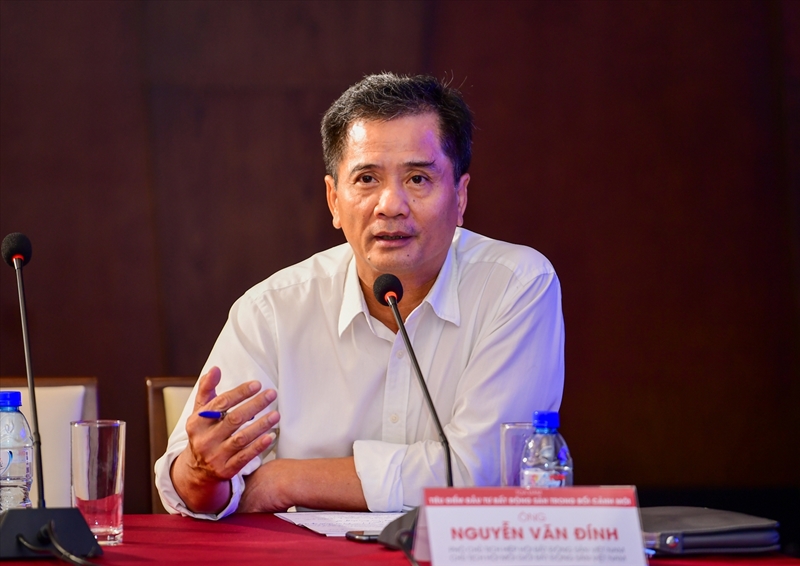 |
| Dr. Nguyen Van Dinh, Vice President of Vietnam Real Estate Association (Photo: PV) |
Believe in the new legal effect on the real estate market
Speaking directly at the seminar, Dr. Nguyen Van Dinh, Vice President of the Vietnam Real Estate Association, pointed out some new points of the laws related to the real estate market such as the land price list before the regulation every 5 years, decided by the Central Government. However, currently, the land price list is updated annually, decentralized to the locality. Information on land prices is strict and clear, so that the game is fairer and more equitable. In addition, the regulations on investment, social housing, selling houses to foreigners... are new regulations that will create a better and more attractive game in the future.
Meanwhile, Mr. Nguyen Hoang Nam, General Director of G-Home, said that with the strong loosening of the law, I expect the new circular to help remove all difficulties so that investors can feel secure in building social housing.
Highly appreciating industrial real estate, Mr. Nguyen Quoc Khanh, Chairman of DTJ Group, commented that although Vietnam's economy is affected by the general difficulties of the world economy, Vietnam's attraction of industrial production is very good and is considered a "hot spot" in attracting foreign investment capital. In addition, infrastructure and seaports in Vietnam have been greatly improved. Developed industrial real estate markets such as Hung Yen and Ha Nam have convenient traffic infrastructure, attracting many domestic and foreign investors. In addition, recent government policies have also provided much support for industrial park real estate, especially the new law allowing the transfer of industrial park real estate with completed legal procedures. However, investors also face challenges in addition to large capital requirements, long collection time, moderate profits and not too fast liquidity. The government aims to develop green industry with green elements being emphasized.
In general assessment of the real estate market, Mr. Le Hong Khang, Director of Analysis and Credit Rating at FiinRatings, said that the market outlook in the next 1-2 years will still recover slowly. Positive points from legal or policy factors will need time to penetrate.
 |
Mr. Tran Quang Trung, Business Development Director of One Housing (Photo: PV) |
Mr. Tran Quang Trung, Business Development Director of One Housing, predicts that from now until the end of the year, the Hanoi market will continue to be in the current situation and after 2025 there will be an improvement in the supply of apartments. Other segments such as low-rise will also have a strong boost at the end of this year and early next year./.
Source: https://dangcongsan.vn/kinh-te/bat-dong-san-trong-boi-canh-moi-673797.html




















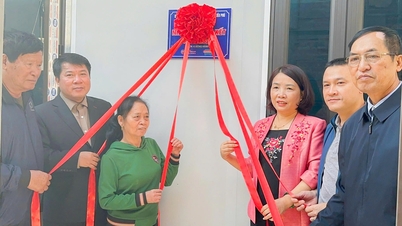
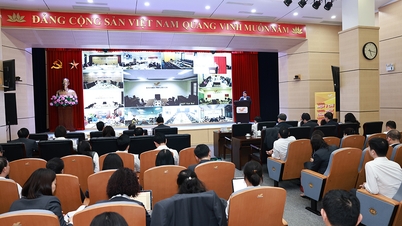

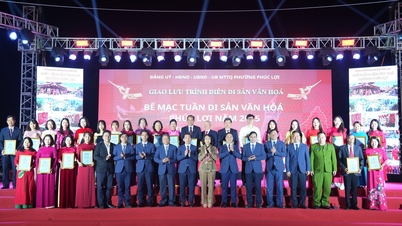





















































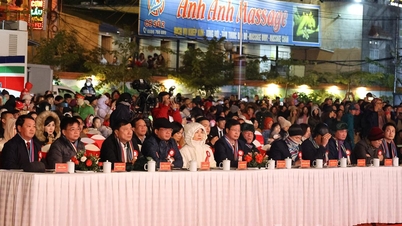








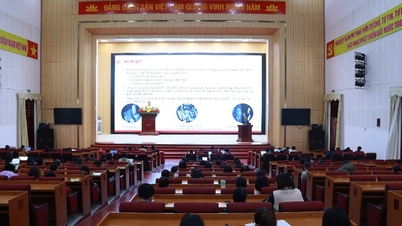












Comment (0)